Cocos Island National Park |
| |
|
Size: 73.100 hectares.
Distance from San José: 650 kilometers.
Camping: Not permitted.
Trails: Yes.
Dry season: January through March.
|
|
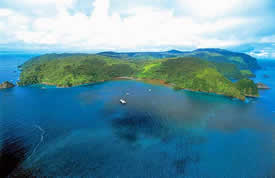 |
| |
|
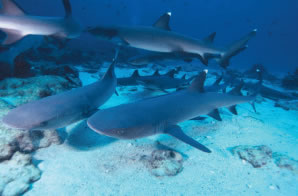 |
Cocos Island called Costa Rica's Galapagos, is a verdant bouquet in the middle of the sea,
discovered by spanish pilot Joan Cabezas in 1526. Thanks
to its palm trees and plentiful drinking water, this oceanic
island became very well known. During the 17th and 18th
centuries, it served as an excellent hide-away for the pirates
who flourished along the Pacific coast of Spanish America. |
| |
|
The island is located approximately 500km. off the pacific coast of Costa Rica. It is famous for three
buried treasures hidden by William Davis, Benito Bonito and
William Thompson between 1684 and 1821. |
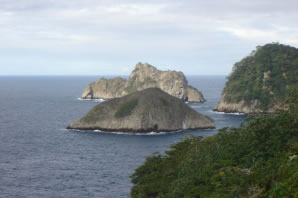 |
| |
|
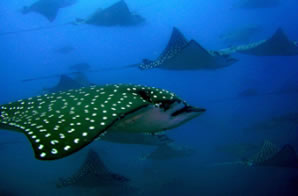 |
Besides fabled riches, it is the unique flora and fauna of
the island that have attracted numerous international
scientists and naturalists. This island is considered
a natural laboratory, to date 85 species of birds have been
identified, of which three are endemic to the island. There are also two species reptiles autochthonous to this area,
and over 20% of the insects are also endemic. |
| |
|
The predominant vegetation includes cupey, huriki
(large endemic tree), spermatophytes, ferns and mosses.
Birds such as the cuckoo and the Cocos Island flycatcher live
amongst goats, pigs, and deers. |
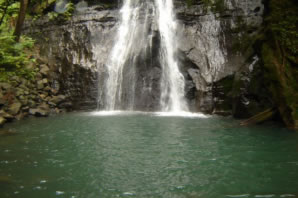 |
| |
|
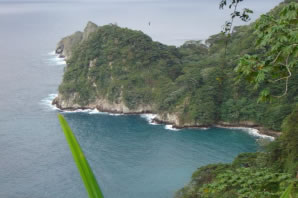 |
The jagged coast is lined with cliffs that tower
up to 183 meters high and are riddled with underwater caves.
This amazingly transparent waters teem with marine life.
Sharks abound everywhere, especially gigantic hammerheads,
but there are also white-tipped sharks, and even some whale-sharks
have been spotted in this area. Other fish that live in
this waters are jacks, tuna, parrot fish and manta. |
| |
|
In December 1967, the island was declared by the UNESCO as a Natural Heritage Site of Humanity; in May 1998, it was declared as a International Importance Wetland by RAMSAR, and in December 2002, Cultural Historic Site by the Ministry of Culture, Youth and Sport (MCJD) of Costa Rica. |
| |
|
| Map of Costa Rica and its National Parks |





